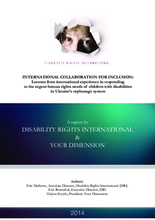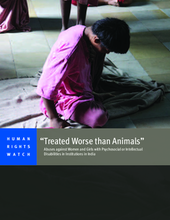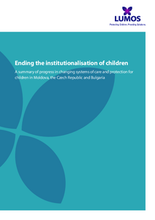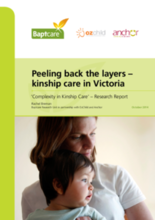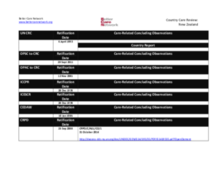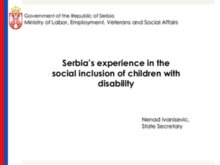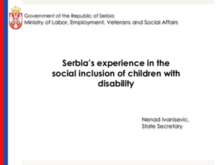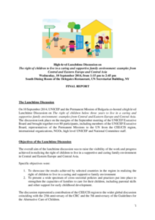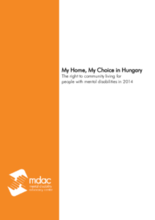Displaying 351 - 360 of 494
This report documents Ukraine’s Soviet-era system of orphanages and other institutions for children with disabilities. The report details the violence, exploitation, and other human rights violations that are frequently committed against these children. It also shows how families who wish to keep their children with disabilities at home are often forced to institutionalize them as a result of lack of support.
This report documents the involuntary admission and arbitrary detention of women and girls with mental health disabilities in mental hospitals and residential care institutions across India.
This report presents a summary of progress in Lumos’ first three country demonstration programmes – the Republic of Moldova, the Czech Republic and Bulgaria.
Baptcare, OzChild and Anchor - three organizations that provide kinship care services in Victoria, Australia - commissioned this research to explore the impact that complexity in care arrangements has on children and families in kinship care.
This country care review includes the care-related Concluding Observations adopted by the Committee on the Rights of Persons with Disabilities as part of its examination of the first periodic report of New Zealand (CRPD/C/NZL/1) at its 143rd and 144th meetings, held on 15 and 16 September 2014.
On 10 September 2014, UNICEF and the Permanent Mission of Bulgaria co-hosted a high level Lunchtime Discussion on the right of children below three years to live in a caring and supportive family environment: examples from Central and Eastern Europe and Central Asia. Serbia focused its presentation on the support provided to families of children with disabilities and the importance of investing in family-support services at municipal level.
On 10 September 2014, UNICEF and the Permanent Mission of Bulgaria co-hosted a high level Lunchtime Discussion on The right of children below three years to live in a caring and supportive family environment: examples from Central and Eastern Europe and Central Asia. Serbia focused its presentation "Serbia’s Experience in the Social Inclusion of Children with Disability" on the support provided to families of children with disabilities and the importance of investing in family-support services at municipal level.
On 10 September 2014, UNICEF and the Permanent Mission of Bulgaria co-hosted a high level Lunchtime Discussion on The right of children below three years to live in a caring and supportive family environment: examples from Central and Eastern Europe and Central Asia.
Despite Hungary signing on to the UN Convention on the Rights of Persons with Disabilities (CRPD), there has been no significant change in the number of people with disabilities in Hungary who are placed in institutions. Mass institutionalisation continues to be the predominant form of care for people--including many children--with mental health issues and intellectual disabilities.
This study focuses on examining the mediating effects of social support on familial well-being or quality of life in order to help professionals identify and enhance sources of support for all grandparent caregivers.

